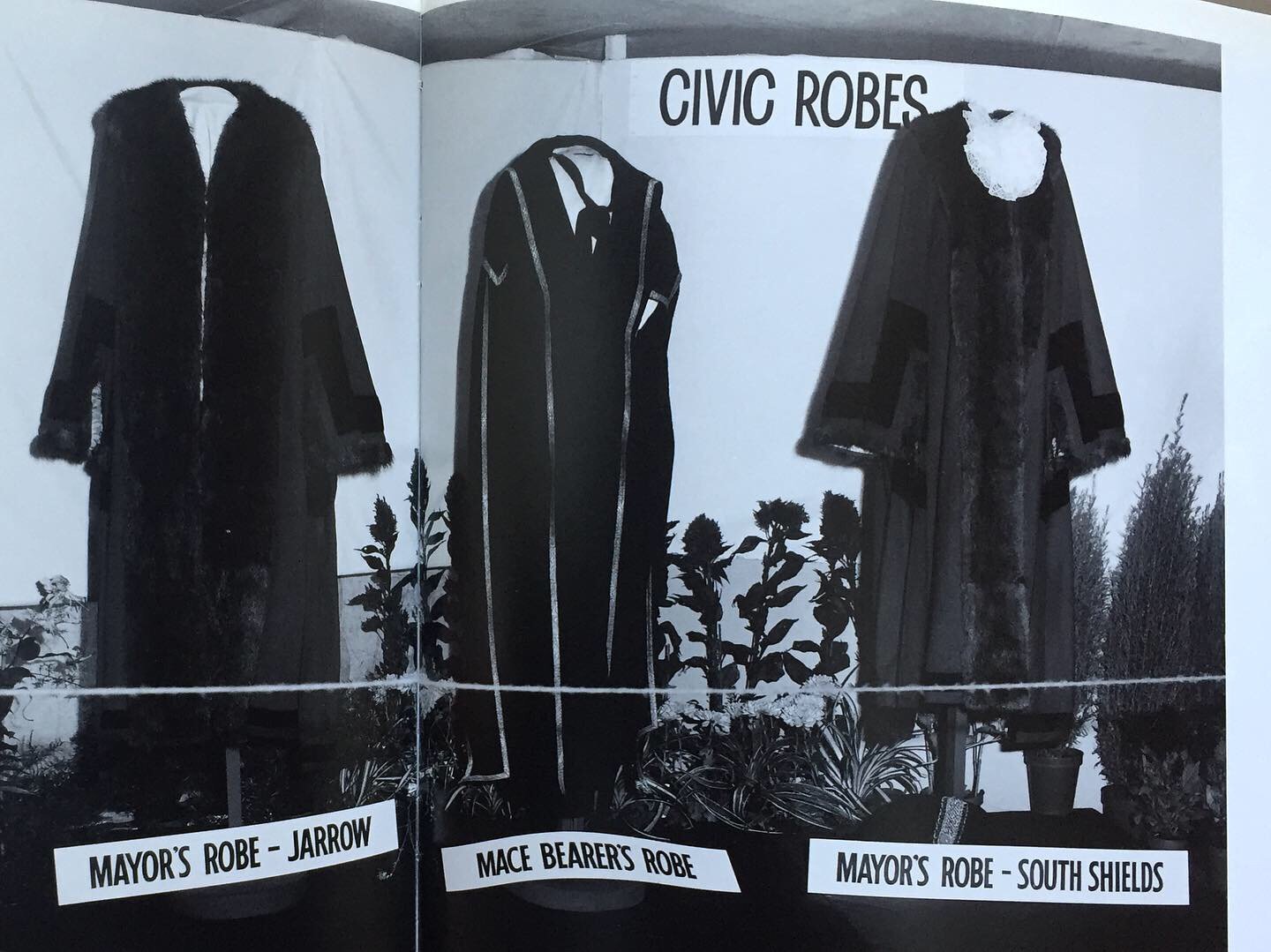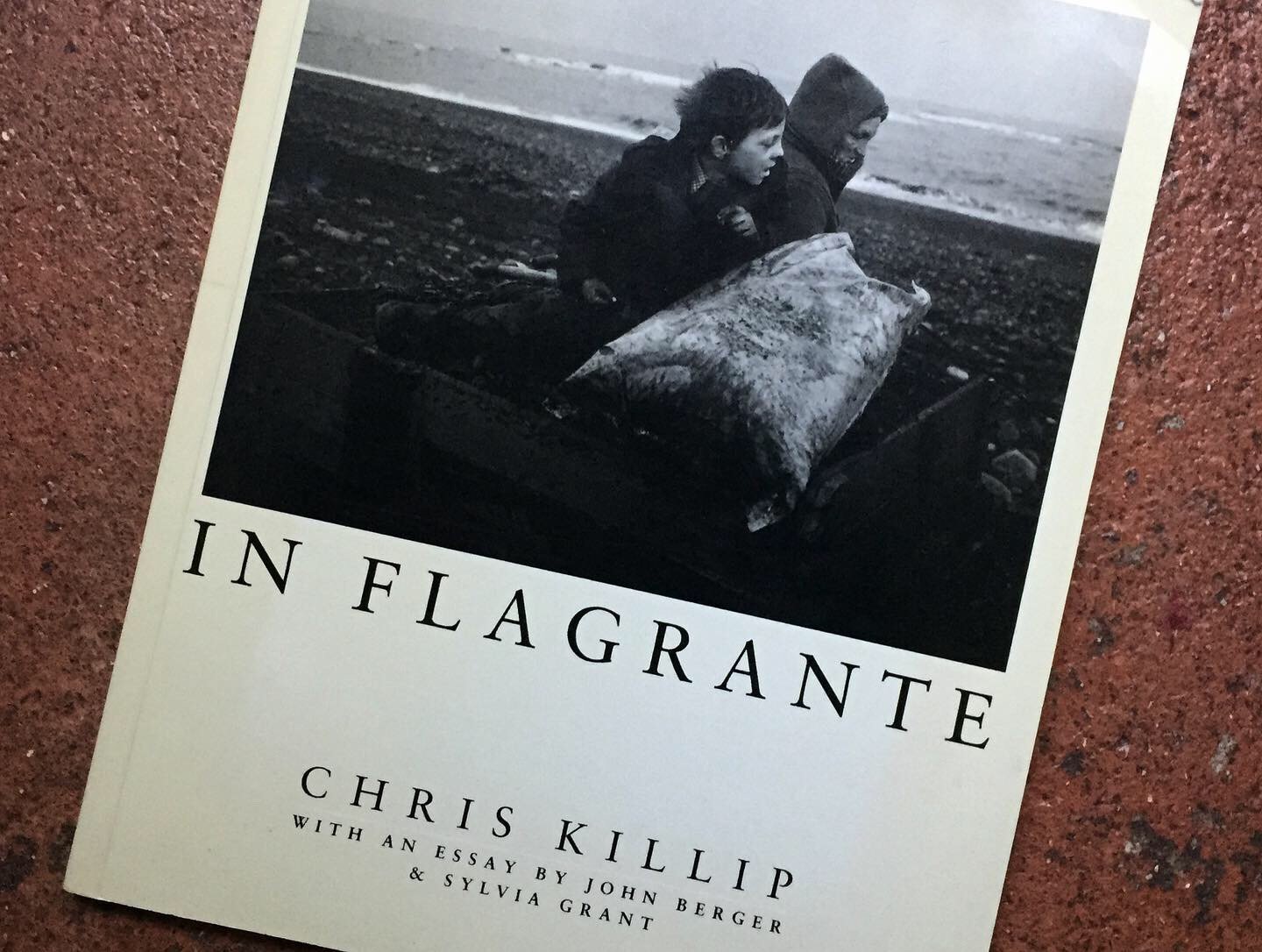In Flagrante by Chris Killip
Chris Killip ‘the objective history of England doesn’t amount to much if you don’t believe in it, and I don’t, and I don’t believe that anyone in these photographs does either as they face the reality of de-industrialisation in a system which regards their lives as disposable. To the people in these photographs I am superfluous, my life does not depend upon their struggle, only my hopes.’
Sylvia Grant ‘I saw an elderly man with a Tesco carrier and a walking stick. I was on the escalator going down and the one going up was, as usual, broken. If there’s a certainty in life, it’s that the escalator going up is broken and your shopping bag’s full. He was walking up the endless stairs and mildly struggling. Only struggling mildly. If he has been more obviously disabled or had been a mother struggling with shopping and a pram, he would have rightly inspired sympathy. He was just a little, tired, unknown man struggling mildly. He was just an old man who had maybe paid his taxes, fought for his country. This beautiful individualism they talk of. By the time this particular man reaches the top of the stairs, his individual legs will feel too tired for this particular concept to bloom. Of course if he had power, money or even just a car, his individualism might flourish. I don’t understand what political people of power mean by that word. Lots of people I know on estates, in hospitals, in unemployment queues, now walk on their individual knows and their individual heads are bowed and they haven’t the energy to strengthen their individual spines.’
In Flagrante is a book of 50 photographs taken in the 70s and 80s documenting the lives of those who had depended on disbanded coal industries in northern England. Text by John Berger and Sylvia Grant. Softcover, first edition. 1988.
Chris Killip ‘the objective history of England doesn’t amount to much if you don’t believe in it, and I don’t, and I don’t believe that anyone in these photographs does either as they face the reality of de-industrialisation in a system which regards their lives as disposable. To the people in these photographs I am superfluous, my life does not depend upon their struggle, only my hopes.’
Sylvia Grant ‘I saw an elderly man with a Tesco carrier and a walking stick. I was on the escalator going down and the one going up was, as usual, broken. If there’s a certainty in life, it’s that the escalator going up is broken and your shopping bag’s full. He was walking up the endless stairs and mildly struggling. Only struggling mildly. If he has been more obviously disabled or had been a mother struggling with shopping and a pram, he would have rightly inspired sympathy. He was just a little, tired, unknown man struggling mildly. He was just an old man who had maybe paid his taxes, fought for his country. This beautiful individualism they talk of. By the time this particular man reaches the top of the stairs, his individual legs will feel too tired for this particular concept to bloom. Of course if he had power, money or even just a car, his individualism might flourish. I don’t understand what political people of power mean by that word. Lots of people I know on estates, in hospitals, in unemployment queues, now walk on their individual knows and their individual heads are bowed and they haven’t the energy to strengthen their individual spines.’
In Flagrante is a book of 50 photographs taken in the 70s and 80s documenting the lives of those who had depended on disbanded coal industries in northern England. Text by John Berger and Sylvia Grant. Softcover, first edition. 1988.
Chris Killip ‘the objective history of England doesn’t amount to much if you don’t believe in it, and I don’t, and I don’t believe that anyone in these photographs does either as they face the reality of de-industrialisation in a system which regards their lives as disposable. To the people in these photographs I am superfluous, my life does not depend upon their struggle, only my hopes.’
Sylvia Grant ‘I saw an elderly man with a Tesco carrier and a walking stick. I was on the escalator going down and the one going up was, as usual, broken. If there’s a certainty in life, it’s that the escalator going up is broken and your shopping bag’s full. He was walking up the endless stairs and mildly struggling. Only struggling mildly. If he has been more obviously disabled or had been a mother struggling with shopping and a pram, he would have rightly inspired sympathy. He was just a little, tired, unknown man struggling mildly. He was just an old man who had maybe paid his taxes, fought for his country. This beautiful individualism they talk of. By the time this particular man reaches the top of the stairs, his individual legs will feel too tired for this particular concept to bloom. Of course if he had power, money or even just a car, his individualism might flourish. I don’t understand what political people of power mean by that word. Lots of people I know on estates, in hospitals, in unemployment queues, now walk on their individual knows and their individual heads are bowed and they haven’t the energy to strengthen their individual spines.’
In Flagrante is a book of 50 photographs taken in the 70s and 80s documenting the lives of those who had depended on disbanded coal industries in northern England. Text by John Berger and Sylvia Grant. Softcover, first edition. 1988.











